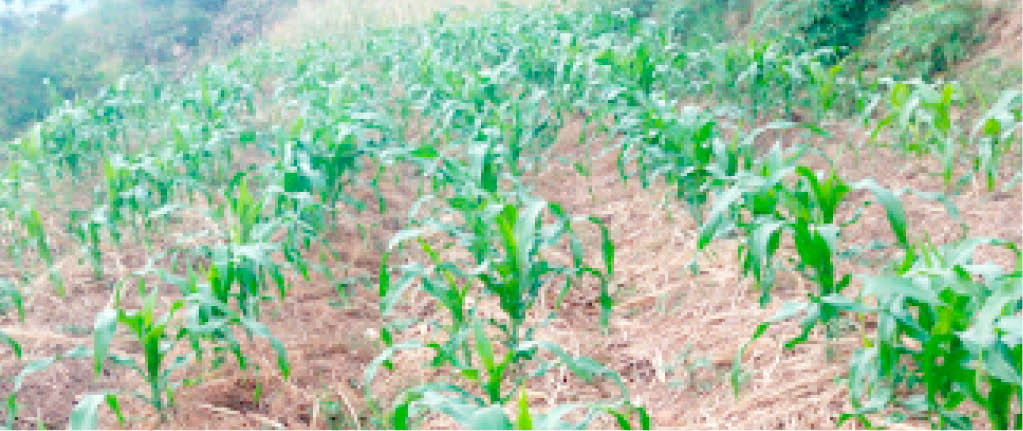With increase in the prices of herbicides across the country, experts believe farmers should start to adopt mulching system as alternative way to control weeds in their farms.
Farmers in recent times depend heavily on the use of herbicides to control weeds in their farms but the recent increase in the prices of the input is already affecting farming activities, especially among the small scale farmers.
To mitigate the trouble, experts are advising farmers to embrace mulching to control weeds in their farms as well as maintain the soil fertility.
Golden Harvest reports that that mulching is a technique in farming or gardening that involves covering the ground after planting crops in the soil cover.
It involves spreading various covering materials on the surface of soil to minimize moisture losses and weed population and to enhance crop yields.
An agricultural expert, Mrs Ebi Eniyekpemi, said the importance of weed management is central to modern farming and that mulching system would help plants get all the needed nutrients from the soil.
Mrs Eniyekpemi, who is the Chief Executive Officer of Afritropic Farming and Agro Services Limited, said mulching is very necessary in crop farming because it helps to prevent competition between crops and weeds.
“As long as crops compete with weeds, such crops will not have enough nutrients and in the long run will not do well.
‘’To prevent weeds from competing with crops and have a beautiful field, mulching is very important.
“It does not necessarily need to be in plastics, a farmer can use grass straws, wood chips or other materials.
“The benefits of mulching farms include using it for weed control, as it will help improve crop yields and reduce competition of the crop with other foreign bodies around it,” he said.
Mallam Abdullahi Rahma, an Ilorin-based agriculturist, told our Agric Editor on Phone that with mulching the amount spend on herbicides by farmers to control weeds would be greatly minimized if not completely wiped out.
The farmer said it does not cost much to prepare mulch on the farm as farmers can make use of grain straw, fresh or old hay, fresh-cut forage or cover crops, chipped brush, wood shavings, tree leaves, cotton gin waste, rice or buckwheat hulls, and other crop residues.
He said most of these are organic, which means they can decompose as time goes on and thereby increase the soil fertility.
‘’Another benefit of mulch is that it helps to prevent weeds. When you add mulch to your beds, it blocks light from penetrating through the soil. Less light means fewer weeds can germinate and this will reduce the money you spend in controlling such weeds,’’ he said.
Alhaji Abdullahi advised that for an annual bed, the farmer should remove the old mulch before tilling the soil and add compost.
‘’However, if you’re applying mulch to a perennial bed, you might be tempted to just add a new layer of mulch on top, but this can cause rot, nutrient starvation, and plant death,’’ he warned.
Mr John Amos, a farmer in Sabo-Wuse in Niger State, said he had been using mulching system for the past six year and has been having results but warned that over-mulching can bury and suffocate plants.
He said he also discovered that mulch provides a hiding place for pests.
But Mrs Eniyekpemi disagreed, saying mulching reduces pest infestation on crops.
“Mulching also helps to control the irrigation pattern on any farm land, retain moisture in the soil and in turn saves water that should have been used to irrigate the crops.
“The saved water will reduce the cost of irrigating the farm regularly because with mulches, it takes time before the soil dries up due to no direct sun hitting the soil anymore.
“The heat that emanates from the mulch helps to decompose organic matters around the soil, such as wood shavings or poultry droppings used as manure.
“The heat helps to decompose them and the crops grow better. The reflection of the plastic ultraviolet mulch also helps in pest control and drive away insects from feasting on the crops,” Eniyekpemi told the News Agency of Nigeria in Lagos.
The expert noted that the warm environment created by the mulch around crops helps the growth of microorganism which improves the nutrient quality of crops.
